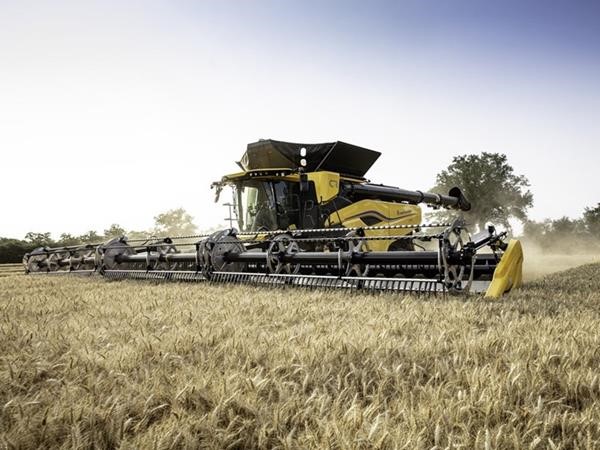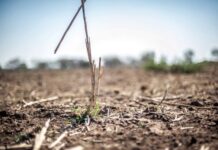The agriculture industry is undergoing a significant transformation, driven by advancements in technology and a growing demand for efficient, sustainable farming practices. Farm implements play a pivotal role in modern agriculture by enhancing productivity, reducing manual labor, and optimizing resource use.
According to Fairfield Market Research, the Farm Implements Market is forecasted to grow significantly, reaching US$92 billion by 2030 from its value of US$61 billion in 2022, at a compound annual growth rate (CAGR) of 5.2% during the period 2023-2030. This growth is driven by the increasing adoption of advanced technologies, including GPS-guided tractors, precision irrigation systems, and smart sensors, which enhance efficiency and sustainability. Eco-friendly tools like no-till seed drills and organic fertilizer spreaders further address environmental concerns, reflecting the sector’s transformation toward modern agricultural solutions.
From traditional tools to cutting-edge machinery, farm implements are revolutionizing how farmers approach cultivation, planting, and harvesting. In this blog, we explore some of the top farm implements shaping the future of agriculture.
- Tractors: The Backbone of Modern Farming
Tractors remain one of the most indispensable farm implements, serving as the backbone of modern agriculture. These versatile machines provide the power needed to operate a wide range of attachments, including plows, seeders, and sprayers. Modern tractors are equipped with advanced features like GPS navigation, automated steering, and real-time performance monitoring, enabling precision farming and efficient land management.
Tractors come in various sizes and capabilities, catering to small-scale farmers and large agricultural enterprises alike. Compact tractors, for instance, are ideal for small farms, while high-horsepower tractors are designed for extensive farming operations.
- Seed Drills and Planters: Precision Planting Made Easy
Seed drills and planters have transformed the way farmers sow seeds. These implements ensure uniform seed placement at the correct depth and spacing, improving germination rates and crop yields. Precision seed drills are equipped with GPS and automated controls to optimize planting patterns, minimize seed wastage, and maximize field efficiency.
With growing concerns over sustainability, seed drills and planters are also designed to support conservation agriculture. These implements minimize soil disturbance, reduce erosion, and promote healthier soil ecosystems.
- Combine Harvesters: All-in-One Harvesting Solutions
Harvesting is a labor-intensive and time-sensitive phase of farming. Combine harvesters simplify this process by combining three essential tasks—reaping, threshing, and winnowing—into a single operation. Modern combine harvesters are equipped with advanced sensors, adjustable settings, and high-capacity storage tanks, making them indispensable for large-scale grain production.
Some models even incorporate artificial intelligence (AI) to monitor and adapt to field conditions in real-time, ensuring optimal harvesting performance. These machines significantly reduce the time and labor required to bring crops from the field to storage.
- Sprayers: Efficient Pest and Nutrient Management
Effective pest control and nutrient application are critical for achieving high crop yields. Sprayers enable farmers to apply pesticides, herbicides, and fertilizers uniformly across their fields. Modern sprayers are designed with precision nozzles, GPS integration, and variable rate technology to minimize chemical use and environmental impact.
Drones and robotic sprayers are the latest innovations in this category. These advanced implements offer unparalleled accuracy and efficiency, especially in hard-to-reach areas or challenging terrains.
- Irrigation Systems: Optimizing Water Use
Water management is a critical aspect of farming, particularly in regions prone to drought or water scarcity. Advanced irrigation systems, such as drip and sprinkler irrigation, ensure precise water delivery to crops, reducing wastage and promoting healthy plant growth. These systems are often integrated with smart sensors and automated controls to monitor soil moisture levels and adjust water application in real-time.
Subsurface irrigation systems are gaining popularity for their efficiency and ability to reduce evaporation. By delivering water directly to the root zone, these systems conserve resources while improving crop yields.
- Plows and Cultivators: Preparing the Soil
Soil preparation is a crucial step in farming, and plows and cultivators are essential implements for this purpose. Plows are used to turn over and aerate the soil, incorporating organic matter and preparing the land for planting. Modern plows are designed to minimize soil compaction and erosion, ensuring better soil health.
Cultivators, on the other hand, are used for secondary tillage, breaking up clumps of soil and controlling weeds. Advanced cultivators come with adjustable settings and attachments, making them suitable for various soil types and farming practices.
- Balers: Simplifying Forage Management
Balers are indispensable for farmers involved in livestock farming or hay production. These machines compress cut crops like hay, straw, or silage into compact bales for easy storage and transportation. Modern balers are equipped with automation features, reducing manual labor and ensuring consistent bale quality.
Round balers and square balers are the most common types, each catering to different needs. Advanced balers can also integrate with tractors and other machinery for seamless operation.
- Automated Weeders: Tackling Weeds with Precision
Weed control is a constant challenge for farmers, and automated weeders are emerging as game-changers. These implements use AI and machine vision to identify and target weeds, applying herbicides only where needed. This precision approach reduces chemical usage, lowers costs, and minimizes environmental impact.
Some automated weeders also employ mechanical methods, such as cutting or uprooting weeds, making them an eco-friendly alternative to chemical herbicides.
- Grain Storage Systems: Preserving Harvest Quality
Proper storage is essential to prevent post-harvest losses and maintain crop quality. Modern grain storage systems include silos, bins, and dryers equipped with advanced features like temperature and humidity control. These systems ensure optimal storage conditions, protecting grains from pests, mold, and spoilage.
Smart storage systems can also connect to farm management software, allowing farmers to monitor and manage their inventory remotely.
- Robotic Implements: The Future of Farming
Robotics is revolutionizing agriculture by introducing autonomous implements capable of performing tasks with minimal human intervention. From robotic harvesters to autonomous tractors, these innovations are redefining efficiency and productivity in farming.
For instance, robotic fruit pickers use AI and computer vision to identify ripe fruits and harvest them with precision. Similarly, autonomous weeding robots can navigate fields independently, reducing the need for manual labor.








